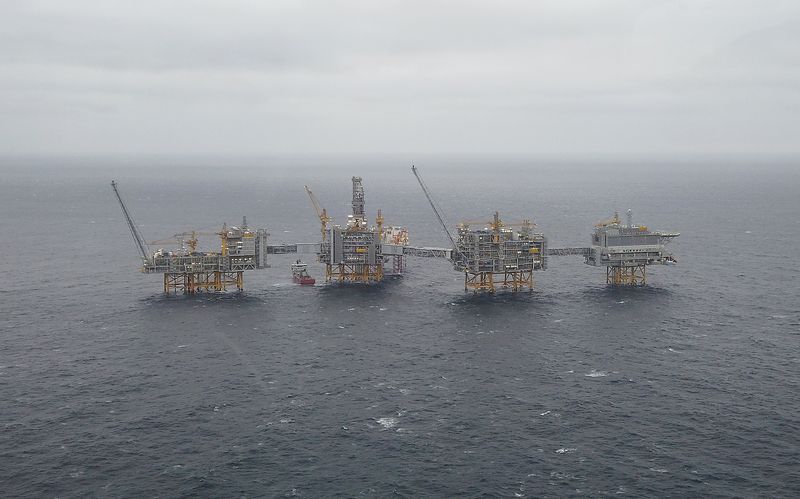By Nerijus Adomaitis
OSLO (Reuters) - Norway's oil and gas firms plan to invest almost $18 billion this year, more than originally expected, as they take advantage of pandemic-era tax incentives, a national statistics office (SSB) survey showed on Thursday.
The forecast is bound to draw criticism from environmentalists, who argue companies should be reining in spending on fossil fuels to curb global warming.
Norway, one of the world's richest countries per capita, is also investing heavily in cleaner energy, but argues it should continue producing fossil fuels while there is global demand.
The SSB survey showed Norway's biggest business sector now expects to invest 159.5 billion crowns ($17.9 billion) in 2022, up from a projected 154.4 billion crowns in November.
That would still be down an estimated 8.1% from 2021.
(Graphic: Norway oil investments, https://graphics.reuters.com/NORWAY-OIL/zgpomjgedpd/chart.png)
SSB said its provisional estimate was for a further decline to 131.4 billion crowns in 2023, but this was likely to change.
"If the schedules for the expected projects are maintained, there will be significantly higher investments in field development in 2023 than what is currently included in the survey," the agency said.
Yet-to-be approved projects include a cluster of oil and gas discoveries in the so-called NOAKA area by Aker BP (NYSE:BP) and Equinor, as well as Equinor's Arctic Wisting oil discovery.
The companies estimate investments in the two projects alone at a total of up to 165 billion crowns.
Investments in 2021 totalled 177.7 billion crowns, down 0.9% from 2020, SSB said.
Oil investments affect near-term growth in Norway's economy as supplier industries benefits from higher orders, as well as longer-term petroleum output, predicted to rise by 9% by 2024.
In 2020, Norway's parliament approved temporary tax incentives to support oil and gas investments amid a crash in petroleum demand due to the pandemic.
The incentives are due to end this year and companies need to approve new projects by this deadline to benefit from them.

Meantime, demand has rebounded as pandemic-related restrictions have eased. Spurred on by geopolitical tensions, European gas prices have surged to record highs, and the oil price has climbed to its highest since 2014. [O/R]
($1 = 8.8984 Norwegian crowns)